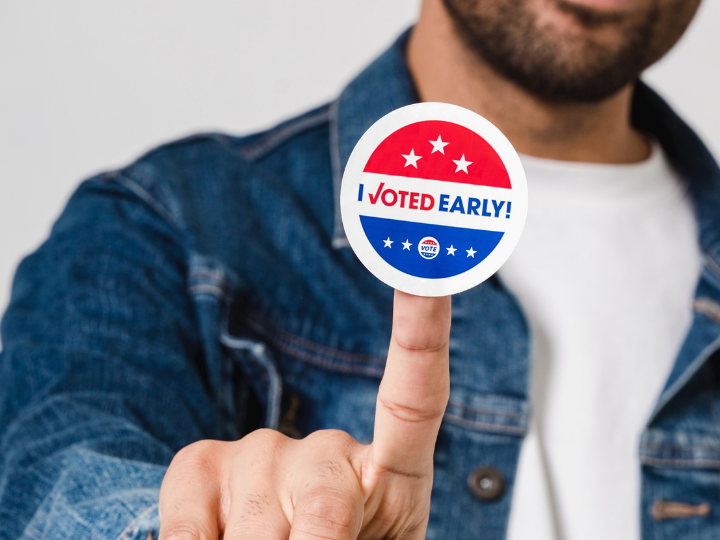
A new University of Houston Hobby School of Public Affairs survey found a sizeable majority of Texans voicing strong support for several provisions in the proposed federal Freedom to Vote Act. When asked individually about 18 specific voting and election reforms – each a key part of the proposed law – most survey respondents expressed robust support for 11 provisions. The remaining seven sparked less unity, although they, too, managed to find significant pockets of support among both Republicans and Democrats.
“While the Freedom to Vote Act was not passed last year, this survey finds there is much common ground to address voting rights,” said Renée Cross, senior director of the Hobby School. “Whether Republican, Democrat or Independent, Texas voters find value in many of these provisions.”
Results reported here are among findings from the fourth and final report, “Proposed Voting and Election Reforms,”from an online survey, “Texas 2022 Elections & Issues,” which included 1,400 registered voters in Texas. The survey, conducted in English and Spanish from Jan. 14-24, asked questions about provisions in last year’s proposed Freedom to Vote Act.
There exists a strong bipartisan consensus in support of nine voting and election reforms spanning four different categories including anti-fraud, campaign finance, gerrymandering and early voting. More than seven in 10 Texans support these nine reforms, with ranges from a low of 72% to a high of 93% among Texas Republicans, Independents and Democrats.
Anti-fraud reforms were supported by more than four out of every five respondents, overall. They would require transparent audits with clearly defined rules and procedures (87% support), voter-verified paper records from voting machines (85%), and a national standard for voter photo IDs in states that require voters to provide proof of identification (80%).
Also backed overall by four out of every five Texans in the survey were campaign finance reforms. Tightening of rules on coordination between Super PACs and candidates met with 88% approval while 84% of the respondents supported requiring major donors be disclosed by all entities that spend more than $10,000 in any federal election.
“After a year of interparty conflict over redistricting in Texas, more than four out of five Texans support a reform that would ban partisan gerrymandering for congressional elections and require congressional districts to be drawn using clear and neutral standards,” noted Mark P. Jones, UH Hobby School senior research fellow and Rice University professor. Support for this ban ranges from a high of 93% among Texas Democrats to a low of 76% among Republicans.
The survey found lower support for several other voting and election reforms.
No-excuse mail voting, allowing any voter to cast a ballot by mail without explaining why, resulted overall in a 50%-50% split between supporters and opponents. A deeper look shows 87% of Democrats in favor but only 17% of Republicans supporting. When considered according to race: 76% of Black Texans, 59% of Latino Texans and 38% of white Texans were in favor.
Qualifying former felons to vote immediately upon release drew sharply divided responses. Overall, 55% approved and 45% opposed this provision. Looking deeper: 80% of Democrats supported it, greatly contrasting with Republican support at only 29%. Significant differences are also found when considering race: 78% of Black Texans, 63% of Latino Texans and 46% of white Texans were in favor.
Same-day voter registration, which would allow voters to register at the same place and time they cast their ballot, was supported by 58% of the respondents compared to 42% in opposition. However, the majority support was heavily skewed along partisan lines with 86% of Democrats and 32% of Republicans in approval. Four out of five (82%) of Black Texans supported same-day voter registration, compared with 66% of Latino Texans and 49% of white Texans.
More details from the survey, including breakdowns of demographics, can be found here. The “Texas 2022 Elections & Issues – Proposed Voting & Election Reforms” survey was conducted online by YouGov for the UH Hobby School of Public Affairs and reflects a confidence interval of +/-2.2%.